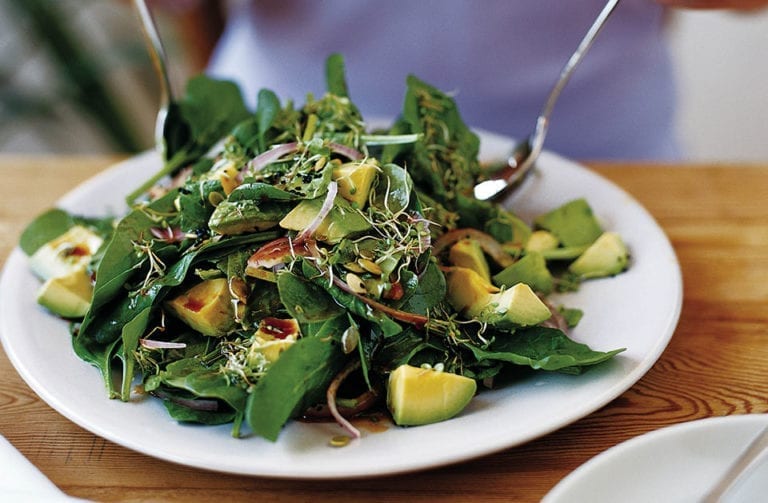Fat or fiction
Do you know your SAFAs from your MUFAs? No? Neither does 97% of the population. Helen Renshaw’s essential guide to ‘good’ and ‘bad’ fats clears up the confusion.

Are you worried about dietary fats and their scary effect on obesity levels. Attempting to cut fat from our diets altogether is not the answer, but which fats are ‘good’ and which are ‘bad’
Recent research conducted by independent advisory board The Fat Panel reveals that 97% of people are confused about which types of fat they should (or shouldn’t) be eating. It’s clearly time for some guidance; here, we cherry-pick the facts you need to know.
Why do we need to eat fats?
Fats, in appropriate amounts, are an essential part of a healthy, balanced diet. They provide essential fatty acids, allow the body to absorb vitamins, support growth, maintain healthy skin and vision and boost the immune function. However, it’s important to eat the right fats.
How much fat should I eat?
Present guidelines recommend that women eat about 70 grams of fats each day, and men around 95 grams. On average, both men and women are eating close to the correct amount. Where things go wrong, however, is that 70% of us are eating too much of the wrong type of fat. Official sources suggest that we eat almost 20% too much saturated fat in our diets.
What are Saturated fats (SAFAs)?
SAFAs are the ‘baddies’ of the fat world – eating too much can raise levels of ‘bad’ blood cholesterol, which can cause a build-up of fatty material and narrowed arteries. This increases the risk of cardiovascular disease. The easiest way to check if a fat is saturated or not is to see how hard or liquid it is at room temperature. SAFAs are hard at room temperature: e.g. butter, lard and the white fat that solidifies after cooking meats. SAFAs are most commonly found in dairy products, meat and meat products such as pies and sausages, cakes, pastries, biscuits and chocolate confectionery. Current recommendations are: no more than 11% of our energy should come from SAFAs (20g a day for women and 30g a day for men).
So, how do Monounsaturated Fats (MUFAs) differ from SAFAs?
Monounsaturated fats are the ‘goodies’ of the fat world. They’re found in olives, olive oil, rapeseed oil, nuts and avocados. Oleic acid (an omega-9 fatty acid) is the most common MUFA in our diets, and can help protect the heart by decreasing the amount of ‘bad’ cholesterol. Some studies suggest that MUFAs may reduce our risk of developing certain cancers, although more research is needed. Most of us should be eating a little more MUFAs.
How do Polyunsaturated fats (PUFAs) fit into the picture?
PUFAs are also beneficial to health. There are two different families of PUFAs in our diets – omega-3 and omega-6 essential fatty acids. The body cannot make them, but they are vital for health. Omega-3s play an important role in the development of the brain and visual system and protect the heart. The key type of omega-3 is that found in oily fish, such as mackerel and salmon. Official figures suggest we could all do with eating more of these. You also need omega-6s in your diet, and rich sources include vegetable oils, some meats, nuts and seeds. Omega-6 aids growth, supports the reproductive system, boosts the immune system, maintains healthy skin and can reduce blood cholesterol.
Why are Trans fatty acids (TFAs) so bad for you?
TFAs are liquid oils that have been hardened by a process called partial hydrogenation. They are often included in meat products, full-fat dairy products, cakes and biscuits. TFAs are bad for our health because they increase ‘bad’ cholesterol and decrease ‘good’ cholesterol. Many manufacturers removed TFAs – for instance, all brands of vegetable oil spreads in the UK are now virtually free of TFAs. TFAs are not always listed on food labels as it’s not a legal requirement, however food manufacturers are required to declare hydrogenated vegetable oil, so if this is included in the ingredients list, the product may also contain TFAs.
Subscribe to our magazine
Food stories, skills and tested recipes, straight to your door... Enjoy 5 issues for just £5 with our special introductory offer.
Subscribe
Unleash your inner chef
Looking for inspiration? Receive the latest recipes with our newsletter